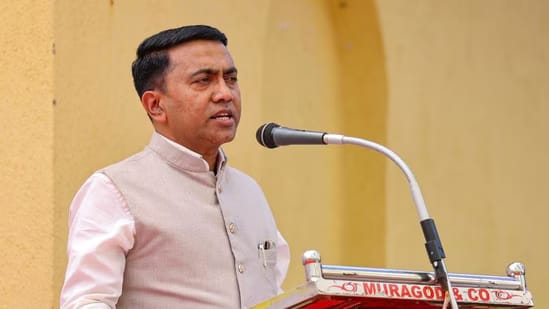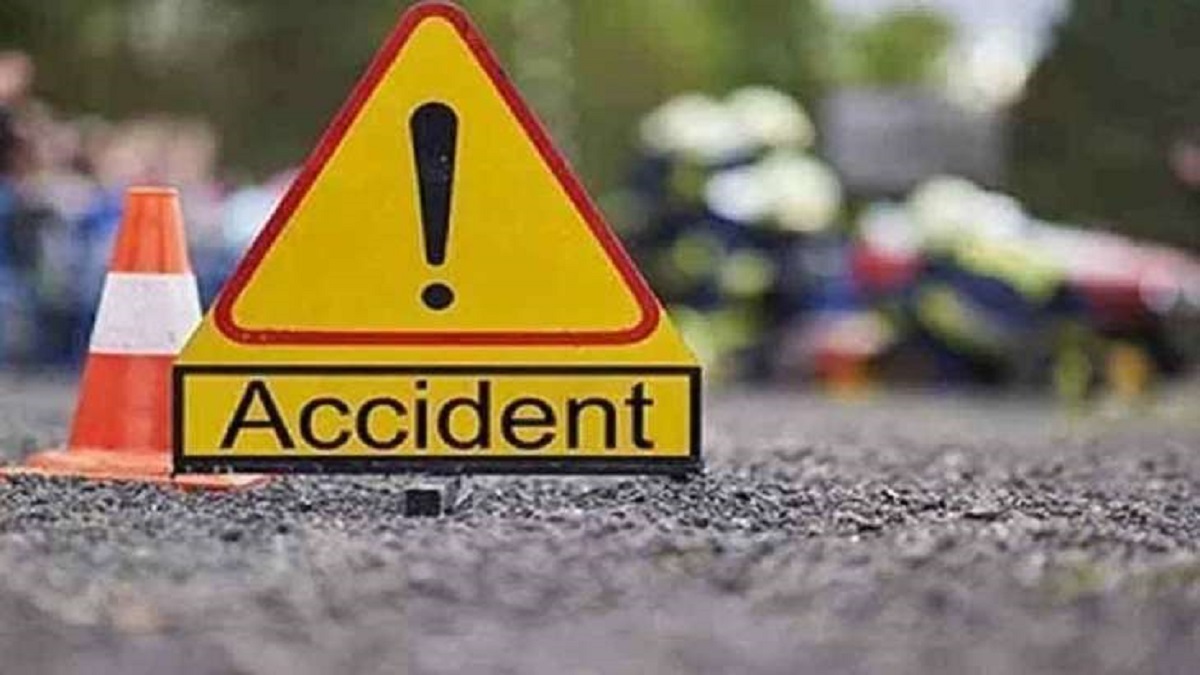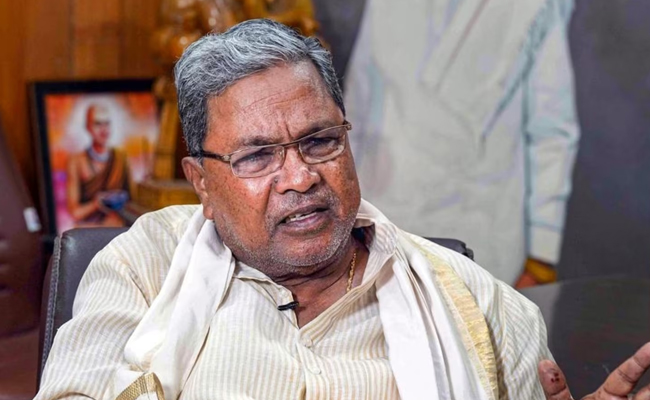Pune (PTI): Maharashtra Chief Minister Devendra Fadnavis on Wednesday said the "compulsion" for students in the state to learn Hindi has been removed in a new order, and now any Indian language can be chosen as the third language.
While English is widely promoted, Indian languages are often neglected, Fadnavis told reporters in Dehu and maintained that disputes over languages are unnecessary.
The state government on Tuesday issued an order saying Hindi will "generally" be taught as the third language to students in Marathi and English medium schools from classes 1 to 5.
The amended government resolution (GR) said Hindi will "generally" be the third language, instead of being mandatory, and gave an option to opt out if 20 students per grade in a school express the desire to study any Indian language other than Hindi.
Some pro-Marathi outfits accused the government of reintroducing the policy through the "backdoor" after initially backtracking, and the opposition Congress accused the government of "stabbing" the Marathi people in the chest.
MNS head Raj Thackeray asked what was the need to "impose" Hindi on students and appealed to schools in the state to foil the government's "hidden agenda to deliberately create a language divide".
Hindi is the state language of some northern states and it is wrong to force it on Maharashtra, where Marathi is widely used, he asserted.
Fadnavis said the GR clearly states that Marathi is compulsory, while Hindi is optional.
"We had earlier made Hindi compulsory, but in the GR issued yesterday, that compulsion has been removed. As per the new GR, students can opt for any third Indian language," the CM said.
The three-language formula was proposed in the New Education Policy (NEP). According to the policy, the mother tongue is mandatory, and apart from that, students will learn two other languages, one of which should be an Indian language, he said.
"Naturally, many people choose English as one of the three languages," Fadnavis said.
He said that earlier, Hindi was proposed as the third language because its teachers are available in good numbers.
"We have now removed that rule. Any Indian language can be chosen as the third language. If there are at least 20 students, a teacher will be made available. If necessary, online education will also be facilitated," the CM said.
He said while everyone promotes English, Indian languages are often neglected, which is not appropriate.
"Indian languages are better than English. I understand that English is a language of communication, but because of the NEP, Marathi has become a language of knowledge. We have started teaching engineering in Marathi, something that wasn't done earlier," Fadnavis said.
"Our doctors are now receiving education in Marathi. MBA (course) is also being taught in Marathi. Because of the NEP, Marathi is becoming a global language, a language of knowledge and economics, and the Maharashtra government has adopted this move. I believe such disputes over languages are unnecessary," he said.
On Raj Thackeray's opposition to the new order, Fadnavis said he has already spoken to the Maharashtra Navnirman Sena (MNS) head.
"He (Thackeray) is insisting that only two languages should be taught and a third language should not be imposed. I tried to explain that the Centre, after a lot of deliberations, introduced the three-language formula in the NEP," the CM said.
"If the entire country is following the three-language formula, Maharashtra cannot adopt a two-language system," he said.
Tamil Nadu (government) had approached the court over the three-language formula, but it did not accept their plea, Fadnavis pointed out.
"I want to ask, what is the harm in learning any third Indian language?" the chief minister said.
"The NEP was formulated after thorough deliberations by experts across the country. While working on the NEP, the cognitive power of children, how to develop their mental capabilities and all these things were taken into consideration," he said.
Let the Truth be known. If you read VB and like VB, please be a VB Supporter and Help us deliver the Truth to one and all.
Panaji (PTI): Goa Chief Minister Pramod Sawant has invoked the "cooperative federalism" principle while targeting the Karnataka government amid the Mhadei river water sharing dispute between the two states.
"They (Karnataka) speak about stopping the supply of vegetables or tourism inflow (to Goa). We never use such language. India can go forward with cooperative federalism. We are Indians first and Goans later," the chief minister told the legislative assembly on Friday after opposition leader Yuri Alemao claimed that Karnataka had threatened to stop vegetable supplies to Goa.
Goa and Karnataka are embroiled in a dispute over sharing the Mhadei river water. The BJP-ruled Goa has accused the Congress-governed Karnataka of planning to divert the river water by constructing two dams.
Sawant had said that the Goa government would file a contempt petition in the Supreme Court against Karnataka for carrying out activities that are aimed at diverting the Mhadei river water.
After the House passed the demands for grants for agriculture, Sawant said Goa has reduced the horticulture import by 30-40 per cent, whereas horticulture commodities' export has gone up by 20 per cent.
He stated that the state-run Horticulture Corporation has been procuring vegetables and fruits from farmers in various states and selling them through stalls.
The chief minister mentioned about a young farmer, Varad Samant, who has been providing vegetables of Rs 50 lakh every year to the state horticulture department.
"I have met this young farmer who is in his 30s. He told me that he earns a net 60 per cent profit from the vegetable supply business," Sawant said.
He said the government has focused on the agriculture sector. Citing the Swayampurna Goa Scheme, he said millet production is being boosted.
Referring to the demands of the Opposition, the chief minister said, rather than increasing support price for various products, the government is contemplating the possibility of providing a hundred per cent subsidy to farmers involved in community farming.
"65,500 farmers are registered with the department. They are eligible for facilities like Krishi card and Kissan credit card. They can now walk into the bank and avail of loan up to Rs 1 lakh. If any bank refuses to lend, tell me. Because the guarantee of your loan is PM Modi's guarantee," he added.

_vb_35.jpeg)

_vb_34.jpeg)

